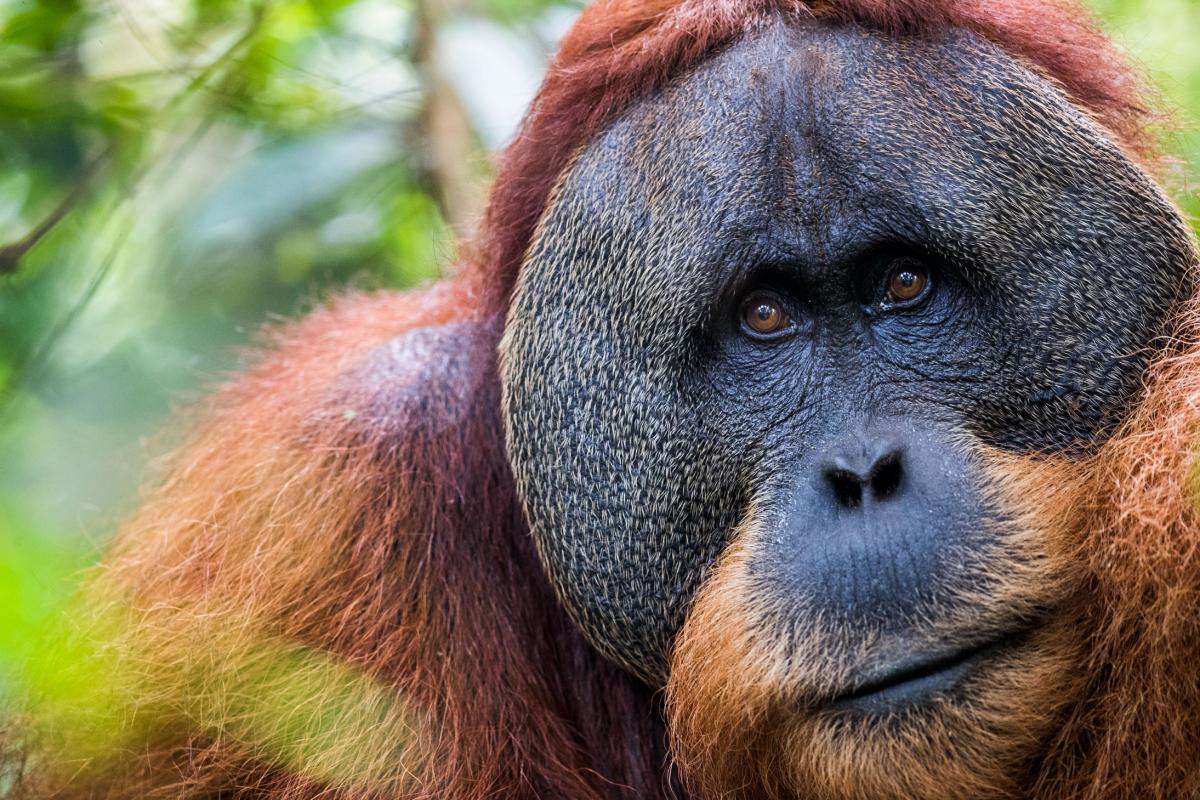UNEP launches Bahasa Indonesia Wild For Life initiative to support the Leuser Ecosystem

Photo: Paul Hilton
Nowhere else is like the Leuser.
Nowhere else on Sumatra – the sixth largest island in the world – is there a larger tract of lowland forest. The Leuser covers over 2.6 million hectares across two Indonesian provinces.
Nowhere else in Indonesia does one single landscape support so many people. The Eastern Leuser alone supports 5.7 million people across 11 districts.
Nowhere else on Earth do elephants, rhinos, tigers and orangutans roam the wild together. In fact, it’s one of the last places to find the rare Sumatran tiger.
And almost nowhere else on the planet can you find such vibrant biodiversity. Rare and endangered species like the clouded leopard, marbled cat, Sunda pangolin and helmeted hornbill share their home with the Big Four.
Beyond being a biodiversity hotspot and its high value as a provider of ecosystem services, the Leuser is also an important carbon store. The Leuser boasts 3 peat swamps that go down 15 metres and cover 140,000 hectares, which means their carbon sequestration potential is enormous. And that’s not even counting the broader forest ecosystem.
But this special, vital landscape is under threat. Habitat loss, human-wildlife conflict and wildlife poaching and trafficking are putting Leuser’s incredible wildlife under immense pressure. The Tropical Rainforest Heritage of Sumatra, which includes Leuser, has been on the list of World Heritage Sites in Danger since 2011.
A unique partnership is now working to protect it. Under the Lion’s Share Fund, local and global partners are combining forces to tackle the threats facing the Leuser simultaneously.
The partnership is focusing on four key areas. The first is maintaining and restoring the Leuser ecosystem and its megafauna species populations. Second is establishing sustainable financing mechanisms so that the restorations made will last. The partnership also supports conservation-based development.
The UN Environment Programme is contributing to the fourth area of the partnership by amplifying the communication of the needs of the Leuser through campaigns and education.
“Beyond being a biodiversity hotspot and its high value as a provider of ecosystem services, the Leuser is also an important carbon store,” said Dianna Kopansky, UNEP peatlands expert. “The Leuser boasts 3 globally significant peatlands of Tripa, Kluet and Singkil which together sequester carbon potentially in the hundreds of millions of megatonnes.. And that’s not even counting the broader forest ecosystem.”
In particular, UNEP is now offering its Wild For Life campaign in Bahasa Indonesia. Wild for Life allows you to find your kindred species out of a number of endangered and threatened animals and plants, including those present in the Leuser, like the tiger, elephant, rhino, pangolin, orangutan, helmeted hornbill and others.
Visitors to the Wild for Life campaign site can take quizzes to learn more about the various endangered species. They are also able to go on journeys that allow them to experience a vignette in the life of an endangered species and how these species help maintain the health of these ecosystems, which in turn support human well being.
UNEP is also making a push to make the Leuser more widely known at the global level.
“The Leuser ecosystem is an exceptionally valuable place, both in terms of its unique biodiversity and for the services it provides to millions living in communities around the ecosystem,” said Lisa Rolls, Head of Biodiversity Communications at UNEP. “Both inside and outside of Indonesia, we hope that getting the word out, through our Wild for Life campaign, will encourage more interest in its protection. With more public support, we can work for stronger policies and enforcement that will keep the Leuser vital for both the humans and animals that depend on it for generations to come.”
The launch of the Wild for Life campaign in Bahasa Indonesia comes on the occasion of World Environment Day 2020, whose theme of Time #ForNature aims to raise awareness of the importance of ecosystems and biodiversity like those found in the Leuser. One of the Leuser’s iconic species, the Sumatran orangutan, is part of the World Environment Day Run #ForNature Instagram game, where players can virtually “save” endangered species living in tropical rainforests from threats like deforestation and poaching.
About UN Environment Programme
UNEP is the leading global voice on the environment. It provides leadership and encourages partnership in caring for the environment by inspiring, informing and enabling nations and peoples to improve their quality of life without compromising that of future generations.
About The Lion’s Share
Animals have been used in advertising for over 150 years, and feature in approximately 20% of all adverts we see. Alarmingly, most popular animals used in these advertising campaigns are either endangered or threatened and face a precarious future. With over 1 million species at risk of extinction within decades, our planet is in crisis and the risk of losing iconic species has never been higher. The Lion’s Share presents an innovative mechanism that engages global brands and advertisers in global conservation efforts. The Fund, hosted by the UNDP, encourages privates sector companies to contribute 0.5% of their media spend on advertisements featuring animals to fund conservation and animal welfare projects around the world. The Lion’s Share is a simple way to make a powerful difference.